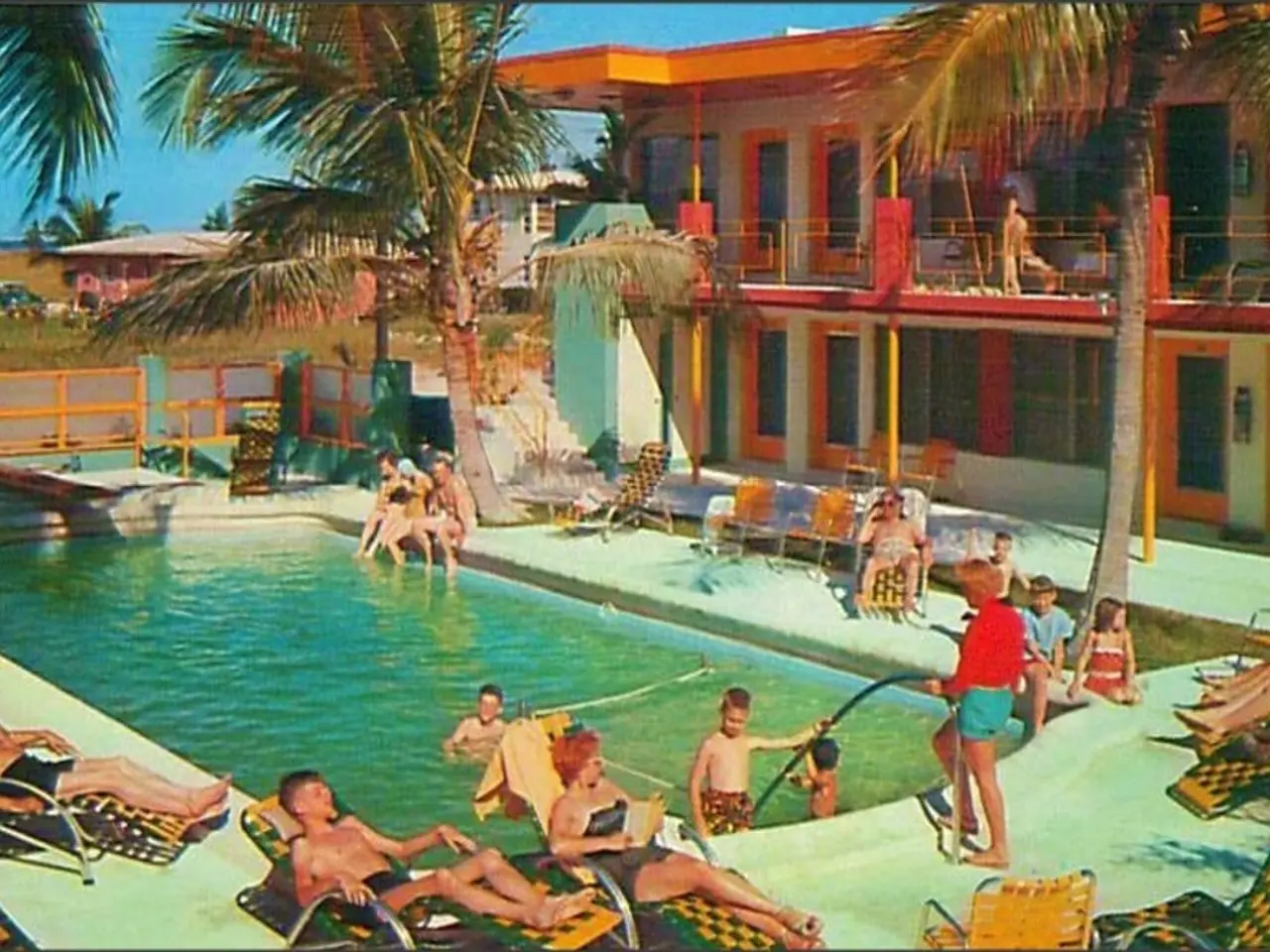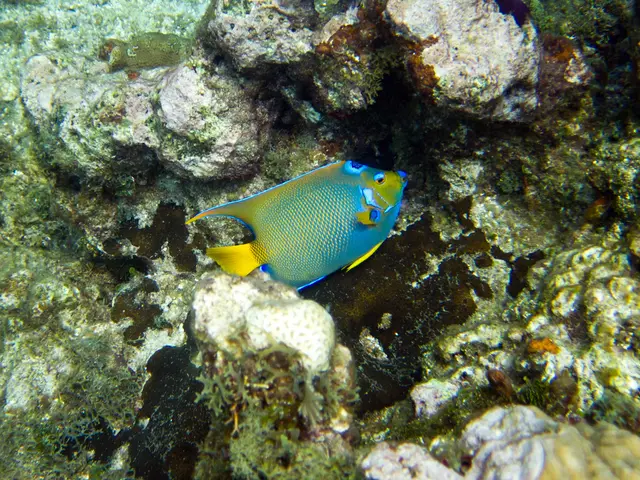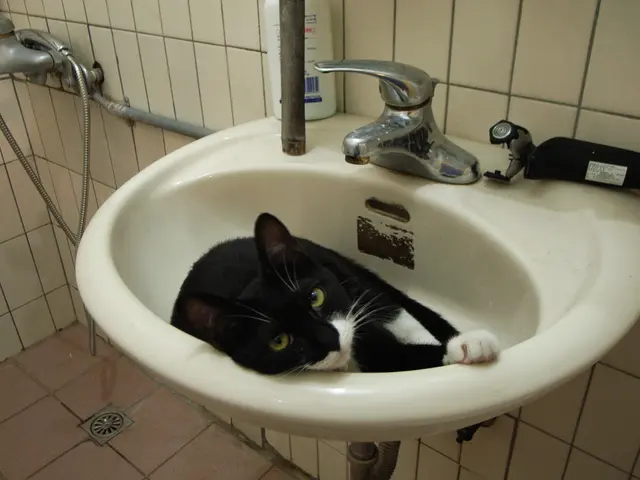Dispute persists in Berlin over the permissibility of swimming in the Spree River
Berlin's Flussbad e.V. Advocates for Public Swimming in the Spreekanal
In the heart of Berlin, a civic initiative named Flussbad e.V. is working tirelessly to revitalize the Spreekanal, transforming it into a clean and accessible urban river space that encourages public bathing and social integration.
On a warm June evening, a group from Flussbad took a dip in the Spree, swimming near Fischerinsel and Museumsinsel. Clad in swim caps, goggles, and bathing suits, they leapt into the water from a small boat launch underneath Leipziger Straße. The water, although refreshing, had occasional pigeon feathers floating past.
Despite the occasional debris, the water quality in the Stadtspree is generally within acceptable ranges, except after heavy rains. The city of Berlin has included funding for the construction of a pilot bathing spot along the Spreekanal in next year's urban development budget, indicating a shift towards accepting public bathing in the canal.
Flussbad's efforts extend beyond just swimming demonstrations. They have organized cultural events, open-air readings, and fitness activities to raise awareness and support for lifting the current bathing ban in the Spreekanal. They even hold "Mitschwimm-Demos" (swim-along demonstrations) advocating to abolish the ban.
However, bathing in the Spreekanal is currently prohibited, primarily due to water quality and sanitation concerns. Flussbad recognizes that public bathing can only be safely achieved by upgrading parts of the sewage system to prevent pollution and by continuous monitoring and managing water cleanliness.
To address these concerns, Flussbad partnered with the Berlin Centre of Competence for Water (KWB) to study the water quality in the Spreekanal. Together, they created a model that generates real-time estimates of water quality conditions in the canal.
The initiative's integrated approach to sustainable urban development—combining ecological improvement with social and cultural enrichment—has garnered attention. Paris plans to open three public swimming spots along the Seine this year, and Berlin councilor Ephraim Gothe suggests that Berlin should follow suit.
Despite their efforts, the group was detained by police under suspicion of violating various water laws and regulations. However, it's worth noting that the Berlin police have not received any complaints or reports of hazards to shipping traffic regarding ban-breaking bathers in the Spree-Oder waterway.
Flussbad's journey began with a simple idea pitched by two brothers, which generated a significant amount of buzz. In 2011, they won a prestigious international sustainable architecture award and received several million euros in grants. The group also installed a flagpole along the Spreekanal to signal when the water is safe for swimming.
Flussbad continues to call for a demonstration to protest 100 years of being denied the right to swim in the river, which was forbidden due to safety concerns. Their fight for public bathing in the Spreekanal is a testament to their commitment to creating a cleaner, more accessible urban river space for all Berliners to enjoy.
[1] Source: Flussbad e.V. website (https://flussbad-berlin.de/)
- While advocating for a shift towards accepting public bathing in the Spreekanal, Berlin's Flussbad e.V. has expanded their initiative to include cultural events, open-air readings, and fitness activities, aiming to promote environmental-science and encourage a sustainable lifestyle in home-and-garden settings.
- With the mission to create a cleaner and accessible urban river space, Flussbad e.V. continues to collaborate with the Berlin Centre of Competence for Water, combining the sciences of climate-change and environmental-science research to monitor and manage the water quality in the Spreekanal, fostering a unique blend of science and lifestyle practices.








